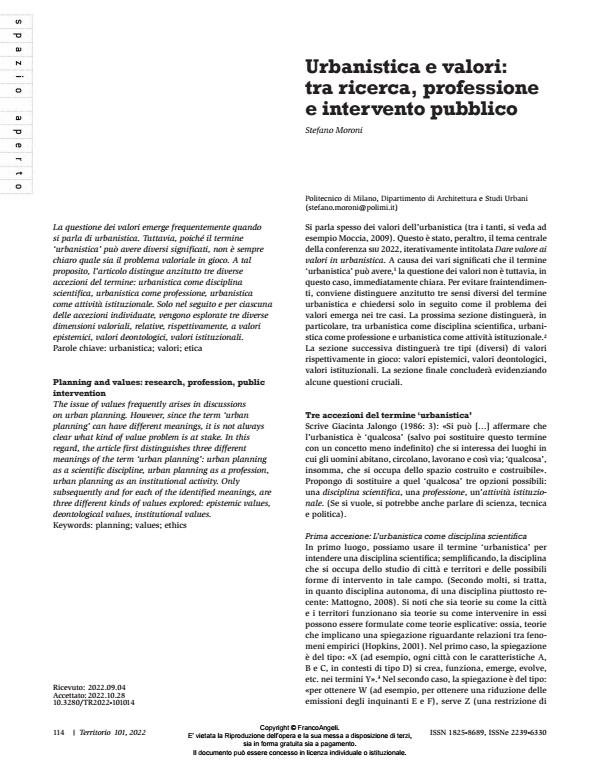Planning and values: research, profession, public intervention
Journal title TERRITORIO
Author/s Stefano Moroni
Publishing Year 2023 Issue 2022/101
Language Italian Pages 5 P. 114-118 File size 132 KB
DOI 10.3280/TR2022-101014
DOI is like a bar code for intellectual property: to have more infomation
click here
Below, you can see the article first page
If you want to buy this article in PDF format, you can do it, following the instructions to buy download credits

FrancoAngeli is member of Publishers International Linking Association, Inc (PILA), a not-for-profit association which run the CrossRef service enabling links to and from online scholarly content.
The issue of values frequently arises in discussions on urban planning. However, since the term ‘urban planning’ can have different meanings, it is not always clear what kind of value problem is at stake. In this regard, the article first distinguishes three different meanings of the term ‘urban planning’: urban planning as a scientific discipline, urban planning as a profession, urban planning as an institutional activity. Only subsequently and for each of the identified meanings, are three different kinds of values explored: epistemic values, deontological values, institutional values.
Keywords: planning; values; ethics
- Values, indicators and policies. A reflection starting from sustainability issues and the covid-19 pandemic [Valori, indicatori e politiche. Una riflessione a partire dalle questioni della sostenibilità e della pandemia di covid-19] Isabella M. Lami, Anita De Franco, Stefano Moroni, in Valori e Valutazioni /2023 pp.5
DOI: 10.48264/VVSIEV-20233202
Stefano Moroni, Urbanistica e valori: tra ricerca, professione e intervento pubblico in "TERRITORIO" 101/2022, pp 114-118, DOI: 10.3280/TR2022-101014